- Learning time
- 40 minutes
- First play time
- 40 minutes
7 Wonders Duel
Designed by: Antoine Bauza,Bruno Cathala
That slightly unwieldy name is down to the fact that Duel is a spin-off of the classic card game 7 Wonders. The original comes with its own 2-player version, but Duel was designed specifically as a head to head game.
Like the original, Duel sees you playing cards to try and build your city and finish your Wonders – the wonders in question being the seven of the ancient world, plus some extra spectacles the designers have seen fit to incorporate. But there’s no dealing or passing cards around in Duel – instead they are laid out in a tableau, some face-up and some face-down, and on your turn you choose a card to take for yourself. The card must be ‘available’ – i.e. unobscured by any cards on top of it. As the blocked cards are made accessible by removing the cards above them, if they are face-down they are flipped over and revealed. Cards all represent buildings, and come in various types: brown and grey being resources (that help you build other cards) yellow utility (helping in various ways) red military, green science, blue are civilian, and purple guilds; which give you a variety of scoring. All are about scoring points, ultimately: directly (blue, red, purple, green) or indirectly (brown, grey, yellow).
The original game played out three rounds before final scoring and Duel can end the same way. But it can also end sooner with a military victory (the military strength of one player overpowers another) or a scientific one (the civilization essentially out-evolves its more backwards opponent!). When military buildings are built the military marker advances toward your opponent on a small shared board, and a scientific victory is achieved by obtaining six of the seven scientific symbols for your city (there’s a different one on each science card). A pair of matching symbols also gives you a boost, as you can choose one of several science advancements for yourself; these are randomly chosen at the start of each game and can be crucial.
Certain cards can be chained (one building allows you to build a later one for free) and if you don’t have the resources you need to build, you can – if you have the funds – buy them from the bank. As well as ‘building’ a card you can also cash it in for money, or use it to build one of your wonders – which in turn give you rewards of various kinds. It’s not one of the easiest games to teach, but a couple of plays and Duel’s fast play will take on a more streamlined appearance.
The guru's verdict
-
Take That!
Take That!
It's fairly Take-That heavy. The military aspect is a constant threat, certain wonders have a destructive element to them and even the choosing of cards from the tableau can leave your opponents with a duff turn.
-
Fidget Factor!
Fidget Factor!
Moderate on a first play, probably. Familiarity will bring it down to almost zero.
-
Brain Burn!
Brain Burn!
Moderate. You need to be looking at the tableau, your own city, your wonders *and* all your opponents' stuff too.
-
Again Again!
Again Again!
If a first play bamboozles, repeat visits to this game show a huge amount of variation, in a big theme that plays in half an hour.

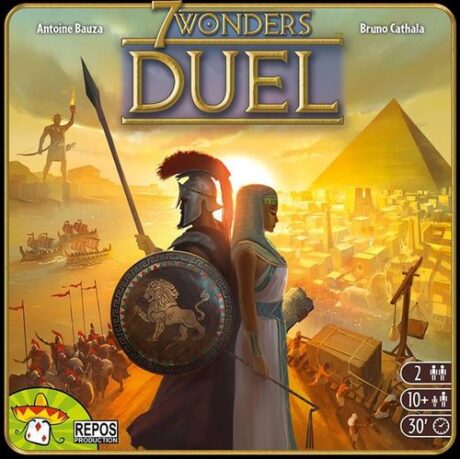
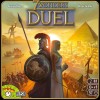
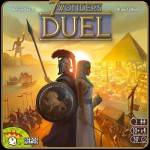
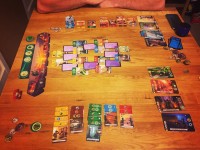
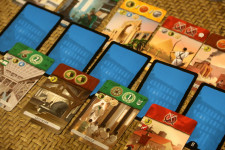


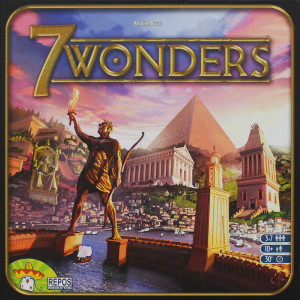
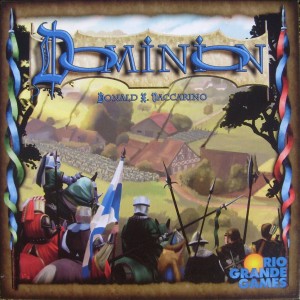
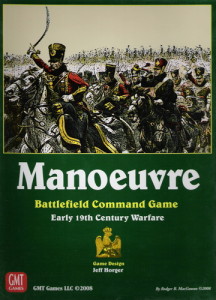
Sam says
I quite liked the original two-player version of 7 Wonders, so I didn't feel a pressing need for a new version. But to be fair to Duel, it keeps the flavour of the original whilst bringing some new things to the table. The card tableau for instance is 'played' as much as you play the cards themselves: if I take X card, then Y card becomes available to my opponent, and I don't want that... it's a neat variation and if you love 7 Wonders I think this is a very solid 2-player experience of it.